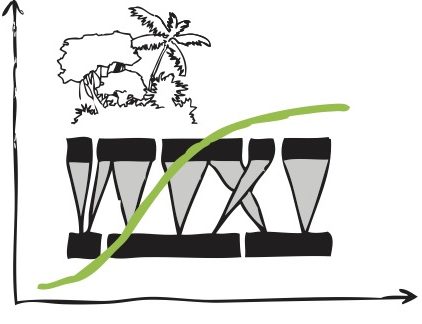We investigate mechanisms underlying the re-assembly of species communities, their interaction networks and ecosystem processes to understand how tropical rainforest ecosystems recover from agricultural areas. We aim to uncover the contribution of single elements of forest ecosystems (different taxa, traits, networks or processes) to natural forest regeneration, but particularly their interplay and synergies during different recovery stages.
Our Research Unit is composed of a coordination module (CM), a subproject focusing on theory (SP 1) and six empirical subprojects (SP 2 – SP 7), each focusing on different networks and processes that are relevant in the context of rainforest recovery. All subprojects are tightly linked.
We will investigate a chronosequence (forest sites recovering for different time spans from a former use as pasture or plantation) to assess and compare the reassembly of interaction networks and trajectories of ecosystem processes. We will quantify the effects of functional traits that are predicted to be important for network reassembly and resilience to perturbations: response traits to environmental conditions, and interaction traits as determinants of network links. Analysing the relative contribution of these traits across distinct ecological processes allows us to distil dis- and reassembly rules of forest recovery. The complexity of newly composed networks with forest recovery is predicted to increase the overall rate and resilience of ecosystem processes. To test this hypothesis, we will perform a perturbation-recruitment experiment along the chronosequence. Overall, our research unit will unravel how, to what extent, and how fast a forest ecosystem can re-establish after deforestation, including the diverse species communities, complex interaction networks, and relevant processes that characterize such forest ecosystems.


